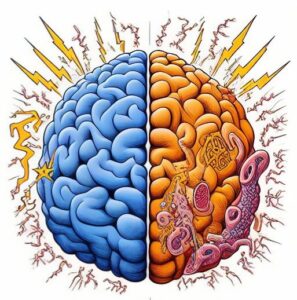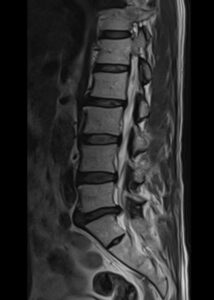Alexander Z
Student
Въпроси
Резюмета
Видеа
Аудио
Where does the spinal cord typically end in the vertebral column?
август 24, 2024
In patients with peripheral neuropathy, which nerve lesion is commonly associated with foot drop and loss of ankle jerk reflex?
август 24, 2024
Which condition can cause wasting and weakness of the quadriceps, along with diminution or loss of the knee jerk?
август 24, 2024
What presenting symptom might be associated with adult-onset diabetes mellitus?
август 24, 2024
To differentiate between a femoral nerve lesion and an L2/3/4 root (or plexus) lesion, which muscle should you test?
август 24, 2024
Which conditions are characterized by dissociated sensory loss, where the patient can feel the lightest touch but cannot distinguish one end of a pin from the other?
август 24, 2024
In peripheral neuropathies and common peroneal nerve lesions, which muscle often shows wasting?
август 24, 2024
In a patient with sciatica, which motor sign may be the only indication of an L5 root lesion?
август 24, 2024
Which clinical feature is characteristic of hereditary spastic paraplegia (HSP)?
август 24, 2024
Which condition is characterized by a shuffling gait with small steps and loss of arm swing, often seen in patients with a normal base?
август 24, 2024
Which of the following features should make you consider a rotator cuff injury rather than an axillary nerve lesion?
август 3, 2024
When should you test for weakness of neck flexion or extension in a patient?
август 3, 2024
Which of the following methods is correct for detecting weakness in the brachioradialis muscle?
август 3, 2024
Which of the following is a correct method to determine if shoulder abduction weakness is due to the serratus anterior or trapezius muscles?
август 3, 2024
Which muscle is crucial to test in a suspected case of radial nerve palsy?
август 3, 2024
Why is it almost impossible to abduct the fingers when they are flexed at the metacarpophalangeal joints, especially in the context of wrist drop?
август 3, 2024
When should myasthenia gravis be considered as a potential diagnosis in a patient with eye movement weakness?
август 3, 2024
Ptosis accompanied by weakness of the orbicularis oculi muscle, which improves with rest but worsens with activity, is most likely indicative of which condition?
август 3, 2024
Pupillary inequality due to an oculomotor palsy is most obvious in which type of lighting condition?
август 3, 2024
Complete ptosis, where the pupil is covered by the lid, is unlikely to be due to which of the following conditions?
юли 31, 2024
Q1.8. Muscle Tone – Spinal and Supraspinal Regulation, Impairment Syndromes
март 17, 2024

Q 2.8. Acute and chronic inflammatory demyelinating polyradiculoneuropathy (Guillen-Barre syndrome). Treatment. Gloria’s Battle with Guillain-Barré Syndrome
февруари 27, 2024
No videos found
Question 1: Peripheral Nervous System Disorders. Classification. Neuralgia, mononeuritis, plexitis. Treatment.
Radiographic Evaluation of the Cranium
февруари 2, 2024







